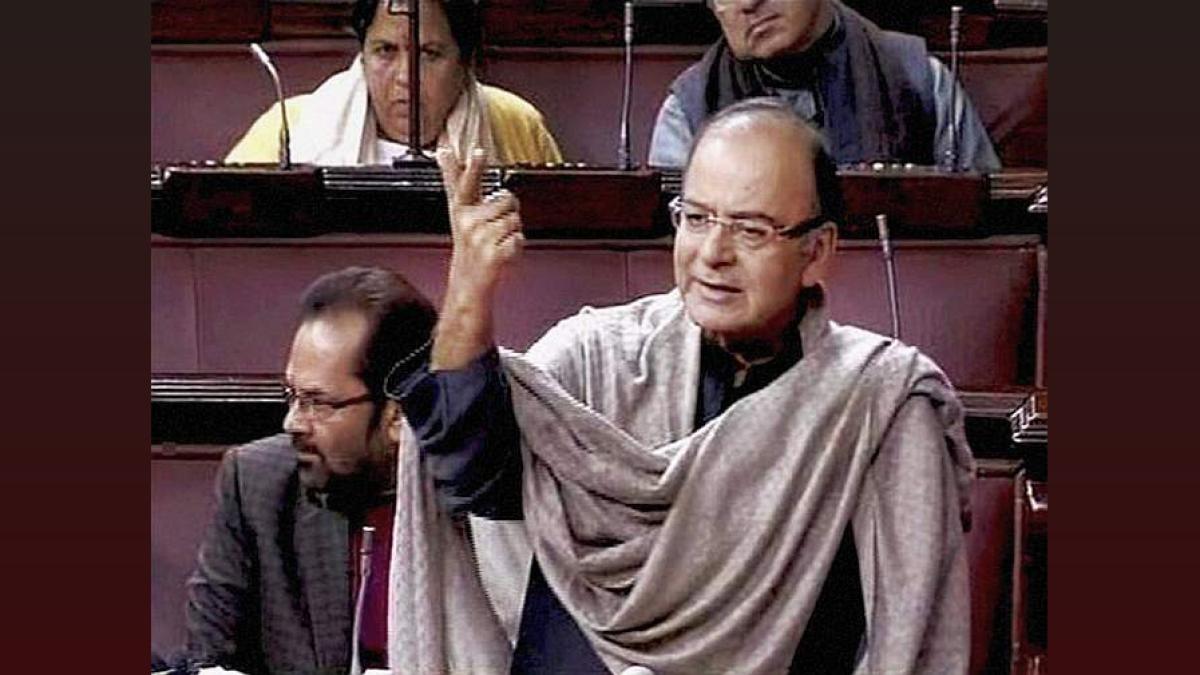Future Affairs Council Proposed for India
RS MP Kartikeya Sharma proposes a Council of Future Affairs to boost research and innovation in India, citing global examples like the UAE and Singapore.

New Delhi, Mar 28 (PTI) Independent Member in the Rajya Sabha Kartikeya Sharma presented a Private Member's Resolution for the establishment of a Council of Future Affairs for the country on Friday.
Urging the government to institute such a council that would provide a unified strategic framework for research-driven innovation and product development in critical future domains, Sharma said, "The proposed council would serve as an apex body comprising leading experts, industry leaders, policymakers, global investors, academic institutions and startups, ensuring multi-stakeholder approach to deep-tech research, product commercialisation and national strategy formulation."
"I would like to inform the House that Haryana, the state I come from, has set a pioneering example in this direction," he said.
Talking about the Department of Future Affairs in Haryana, Sharma said it became the first state in India to create a dedicated institutional mechanism for anticipating and preparing for future challenges and opportunities.
According to Sharma, there are umpteen global examples of future-focused governance.
"The UAE established the Ministry of Cabinet Affairs and the Future in 2016, demonstrating institutional commitment to the future planning at the highest government level, created the position of Minister of State of Artificial Intelligence in 2017, becoming the first country in the world and dedicated AI minister," Sharma said.
He added, "Singapore is another good example which has set up the strategic foresight and execution excellence. Singapore's Centre for Strategic Futures, established in 2009 under the Prime Minister's office, conducts scenario planning and horizon scanning to identify emerging issues."
He also cited instances from countries like Israel, Finland, South Korea and said, "There are umpteen examples, but I will just quote a few to put in the context of why it is important and what is the relevance, how the world is approaching this issue, and how India should as well."
Sharma suggested the creation of a unified ecosystem where research seamlessly translates into market-ready innovations across key strategic domains, ensuring that India not only adopts but also shapes the global technology standards and frameworks, development of indigenous capabilities in critical technology areas to reduce foreign dependencies and establish technological sovereignty.
"The digital India and the technological self-reliance. The proposed Council of Future Affairs directly complements the Honourable Prime Minister Modi's digital India vision by creating institutional mechanisms to accelerate digitalisation across sectors.
"The Council aligns with the government's focus of Aasman Nirmal Bharat by strengthening indigenous technological developments, capabilities and reducing dependence on foreign technologies in critical sectors," he said.
According to Sharma, India produces over 1.5 million engineering graduates annually, the highest in the world providing a steady stream of technical talent.
"The median age in India is 28 years compared to 38 in China, 42 in Europe, and 38 in the US, giving India a demographic dividend that will last until 2055 according to the UN population projections," he said.
"India has created a massive base for technology adoption. The India stack, Aadhaar, UPI, DigiLocker etc has demonstrated India's capability to build public digital infrastructure at unprecedented scale and pace. India's data consumption has grown exponentially to over 20 GB per user per month...," he added.
Taking part in the discussions, AAP Rajya Sabha member Sandeep Kumar Pathak stressed the need to increase spending on research and development for India to be able to come up with extraordinary technological innovations.
He said there are many councils in the country but the government does not seem to have any interest in them.
"We spend only 0.64 per cent of GDP on research and development. If a nation spends only 0.64 per cent of GDP, then you cannot expect that you would do something extraordinary," Pathak said, adding that India's spending on R&D is very less compared to the US, China, Japan and Germany.
BJP's Bhagwat Karad said spending on R&D has more than doubled under the Modi's leadership compared to the previous UPA regime.
He acknowledged that for India to achieve the goal of a developed nation, the country needs to invest on research and development and building future technologies.
Fauzia Khan NCP said Artificial Intelligence is now undeniable and is a defining force of our era and no more confined to labs.
She highlighted the gap between the academia and the industry into the country in the field of technology.
Jebi Mather Hisham of INC recalled the role of Rajiv Gandhi in introducing new technology and said he was the architect of digital India and telecom revolution.
She raised concerns of artificial intelligence taking job opportunities and asked the government if they have plans to address the issue.
CPI(M)'s V Sivadasan said in the democratic society it is the duty of the government to provide facilities of the technological developments to each and every body but the system is going in opposite direction.
BJD's Sasmit Patra said, "We would have to be futuristically and cerebrally powerful."
A lot of jobs will be taken over by AI, but it will also provide opportunities for the youth to become innovators rather than employees, he added.
Urging the government to institute such a council that would provide a unified strategic framework for research-driven innovation and product development in critical future domains, Sharma said, "The proposed council would serve as an apex body comprising leading experts, industry leaders, policymakers, global investors, academic institutions and startups, ensuring multi-stakeholder approach to deep-tech research, product commercialisation and national strategy formulation."
"I would like to inform the House that Haryana, the state I come from, has set a pioneering example in this direction," he said.
Talking about the Department of Future Affairs in Haryana, Sharma said it became the first state in India to create a dedicated institutional mechanism for anticipating and preparing for future challenges and opportunities.
According to Sharma, there are umpteen global examples of future-focused governance.
"The UAE established the Ministry of Cabinet Affairs and the Future in 2016, demonstrating institutional commitment to the future planning at the highest government level, created the position of Minister of State of Artificial Intelligence in 2017, becoming the first country in the world and dedicated AI minister," Sharma said.
He added, "Singapore is another good example which has set up the strategic foresight and execution excellence. Singapore's Centre for Strategic Futures, established in 2009 under the Prime Minister's office, conducts scenario planning and horizon scanning to identify emerging issues."
He also cited instances from countries like Israel, Finland, South Korea and said, "There are umpteen examples, but I will just quote a few to put in the context of why it is important and what is the relevance, how the world is approaching this issue, and how India should as well."
Sharma suggested the creation of a unified ecosystem where research seamlessly translates into market-ready innovations across key strategic domains, ensuring that India not only adopts but also shapes the global technology standards and frameworks, development of indigenous capabilities in critical technology areas to reduce foreign dependencies and establish technological sovereignty.
"The digital India and the technological self-reliance. The proposed Council of Future Affairs directly complements the Honourable Prime Minister Modi's digital India vision by creating institutional mechanisms to accelerate digitalisation across sectors.
"The Council aligns with the government's focus of Aasman Nirmal Bharat by strengthening indigenous technological developments, capabilities and reducing dependence on foreign technologies in critical sectors," he said.
According to Sharma, India produces over 1.5 million engineering graduates annually, the highest in the world providing a steady stream of technical talent.
"The median age in India is 28 years compared to 38 in China, 42 in Europe, and 38 in the US, giving India a demographic dividend that will last until 2055 according to the UN population projections," he said.
"India has created a massive base for technology adoption. The India stack, Aadhaar, UPI, DigiLocker etc has demonstrated India's capability to build public digital infrastructure at unprecedented scale and pace. India's data consumption has grown exponentially to over 20 GB per user per month...," he added.
Taking part in the discussions, AAP Rajya Sabha member Sandeep Kumar Pathak stressed the need to increase spending on research and development for India to be able to come up with extraordinary technological innovations.
He said there are many councils in the country but the government does not seem to have any interest in them.
"We spend only 0.64 per cent of GDP on research and development. If a nation spends only 0.64 per cent of GDP, then you cannot expect that you would do something extraordinary," Pathak said, adding that India's spending on R&D is very less compared to the US, China, Japan and Germany.
BJP's Bhagwat Karad said spending on R&D has more than doubled under the Modi's leadership compared to the previous UPA regime.
He acknowledged that for India to achieve the goal of a developed nation, the country needs to invest on research and development and building future technologies.
Fauzia Khan NCP said Artificial Intelligence is now undeniable and is a defining force of our era and no more confined to labs.
She highlighted the gap between the academia and the industry into the country in the field of technology.
Jebi Mather Hisham of INC recalled the role of Rajiv Gandhi in introducing new technology and said he was the architect of digital India and telecom revolution.
She raised concerns of artificial intelligence taking job opportunities and asked the government if they have plans to address the issue.
CPI(M)'s V Sivadasan said in the democratic society it is the duty of the government to provide facilities of the technological developments to each and every body but the system is going in opposite direction.
BJD's Sasmit Patra said, "We would have to be futuristically and cerebrally powerful."
A lot of jobs will be taken over by AI, but it will also provide opportunities for the youth to become innovators rather than employees, he added.
You May Like To Read
TODAY'S MOST TRADED COMPANIES
- Company Name
- Price
- Volume
- Vodafone Idea L
- 7.33 (+ 2.09)
- 49418710
- Standard Capital
- 0.49 (+ 2.08)
- 24177276
- Integrated Industrie
- 19.52 (+ 2.57)
- 12400338
- AvanceTechnologies
- 0.64 (+ 3.23)
- 11280143
- Srestha Finvest
- 0.54 ( 0.00)
- 10950967






 © 2025 Rediff.com India Limited. All rights reserved.
© 2025 Rediff.com India Limited. All rights reserved.